In the small town of Miyakonojou in southern Kyushu lives one Mr. Fukunaga, a bonsai hobbyist. He’s been growing bonsai for several decades – mostly black pine, white pine, and Japanese maples with some other varieties here and there. Conifers filled his front yard.
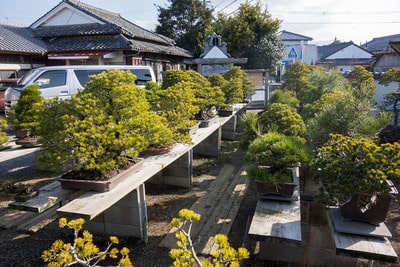
Mr Fukunaga’s garden
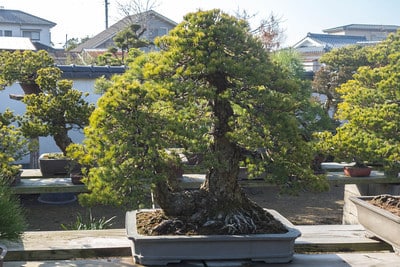
Twin trunk white pine
Some of the trees were not small.
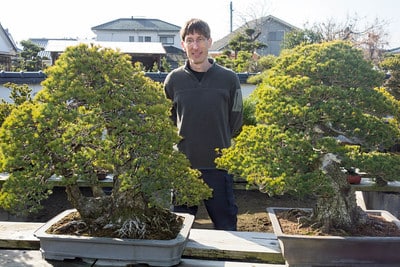
Hiding behind large white pines
In such a garden, I looked to the trunks and roots to tell the trees apart. As is common in many Japanese bonsai gardens, a number of the white pines had gone a while since their last repotting.
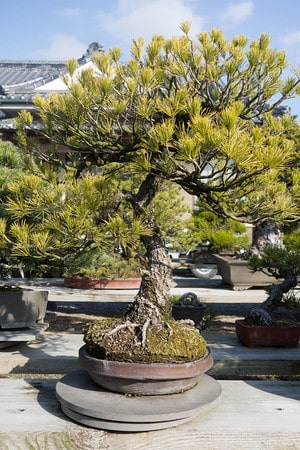
White pine
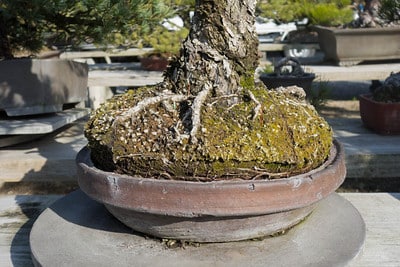
Roots pushing the tree out of the pot
The approach is popular as repotting infrequently helps keep white pine growth in check. I also learned a little bit about developing black pines. Lesson 1 – seedling cuttings produce roots that are the same size and shape.
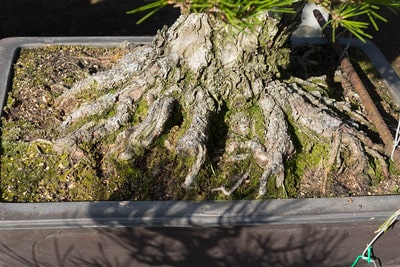
Likely evidence of tree made by seedling cutting
Lesson 2 – growing pines in containers can keep surface roots under control – a big plus when fitting trees into small show pots
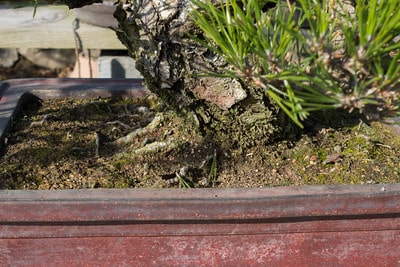
Container grown black pine with modest nebari
Growing pines in the ground can have the opposite effect.
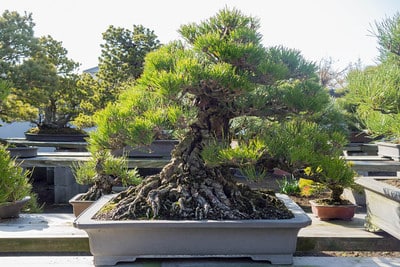
Pine developed in the ground.
Wait, what?
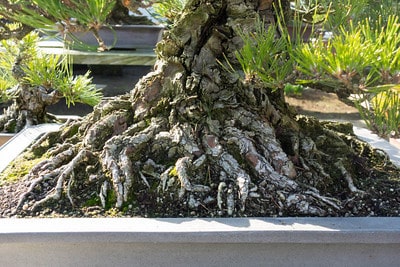
Whole lotta roots
As I walked through the front yard it became fairly easy to tell which trees were developed in the ground and which developed in pots.
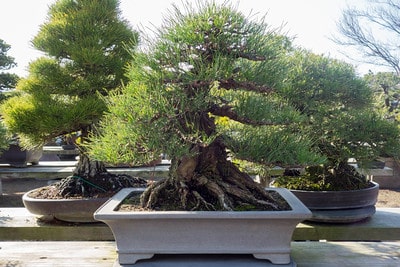
Field grown pine
In Fukunaga’s backyard, I got to see some of the trees in development.
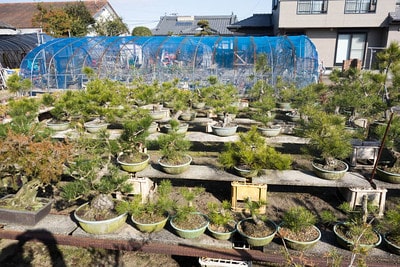
Fukunaga’s backyard
Most of the space was filled with younger white and black pines. Two greenhouses housed the deciduous varieties.
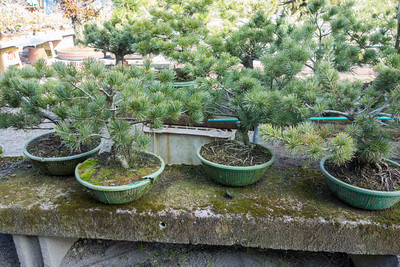
Young white pines – about 15 years old
Mr. Fukunaga had a blast talking about how he made these trees. Most of the black pines are now roughly 30 years old. They were entirely container grown in colanders.
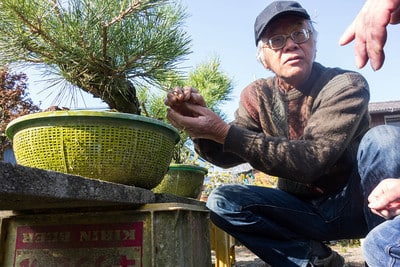
Mr. Fukunaga
It was fun to see the movement, and in some cases the bark, of these pines. Branch work was rudimentary as the focus to date has been on the trunks.
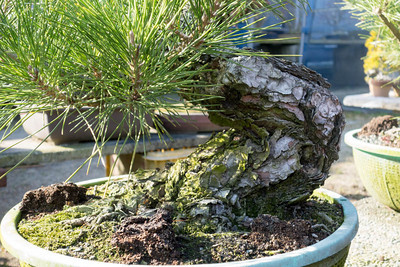
30 year old black pine
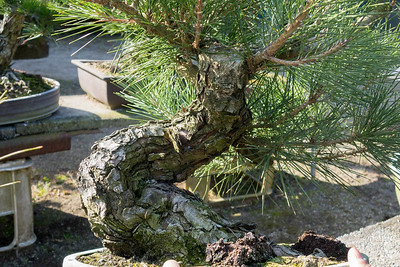
Look like a fun project?
More from Mr. Fukunaga’s backyard coming soon.
Subscribe to Bonsai Tonight
New Posts Delivered Every Tuesday and Friday
Adair Martin says
Wow! Truly awesome trees! What a great opportunity to see him working on them. Jonas, we really appreciate you sharing your experiences.
Keith says
Tremendous thanks for this look at development methods. Andy Rutledge once had a series of photos showing old pines still being developed, but the photos were removed. Thanks again for sharing openly! Looking forward to more great articles.
Patricia Tatich says
The quality of the trunks and the health of the trees speaks to the value of using containers where there is sufficient air passage to the roots.Hope to hear more on on using these type of containers for other types of trees. Thank you for sharing…..pt in the Adirondacks
Mac says
Going to go out and find me some colanders today!
Thanks Jonas. Is Mr. Fukunaga strictly a hobbyist? I know we hobbyists get carried away sometimes but the back yard of trees in development kind of looks like he may sell from time to time. Perhaps keeping the best for himself and selling not so hot material.
Looking forward to the next issue of Mr. Fukungaga’s work.
Jonas Dupuich says
Thanks Mac. And yes, Fukunaga is strictly a hobbyist – much like many of us who occasionally sell trees from time to time.
Jeremiah Lee says
Great pics as usual! Thank you so much for sharing, I think we can learn alot from these pictures. Do you think the bark quality was better from ground growing or container?
Jonas Dupuich says
Thanks Jeremiah – I didn’t seen enough of the ground-grown pines to know if there’s much of a difference, but it’s clear that the container grown trees can produce great bark. I’ll say more about container grown pines soon.